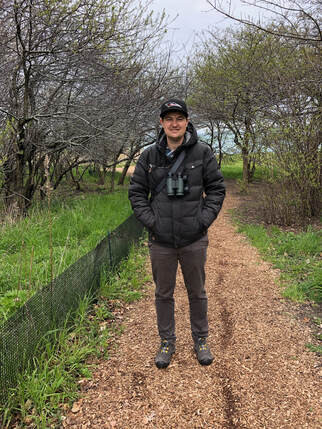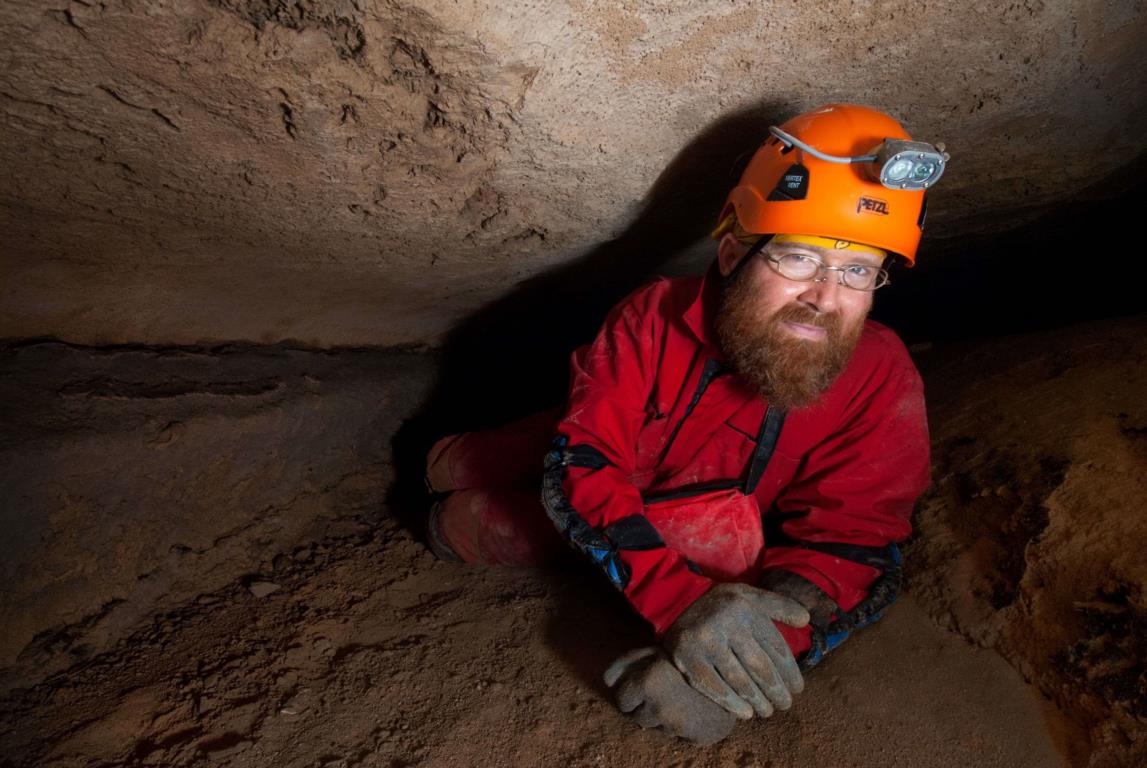The 2023 Spring Convention of the Arkansas Audubon Society will be held May 5-6 at the Hilton Garden Inn Hotel at 2840 So. Caraway Rd in Jonesboro. We’re excited to be offering some outstanding speakers and activities at this meeting! All meals and meetings will be held at the Hilton Garden Inn. The hotel has an indoor pool, fitness center, and pet-friendly rooms, as well as the usual amenities.
Room rates are $109 per night plus tax. To make a reservation, call the hotel at 870-931-7727 and indicate you are part of the Audubon conference or click on this link.
Reserve your room by April 21 to ensure your special AAS room rate. Register at arbirds.org by April 21 to qualify for Early Bird registration rates: $25 for AAS members and $35 for non-members. Save money by registering early! Also please note the cutoff date for registration is May 1.
Our Friday night speaker is Mike Slay, who will speak on "Blanchard Springs Caverns: Arkansas's Underground Biodiversity." Mike has been the Ozark Karst Program Director for The Nature Conservancy since 2008. He has extensive experience exploring Ozark Highland caves and has coordinated species monitoring and habitat analysis in several hundred caves. For more on Mike, see below and also check out his website.
On Saturday afternoon, we will offer our usual symposium with an eclectic array of topics that’s still evolving. At present, topics include “Life Upside Down --The Nuthatch”; “Mystery of Blue and the Duck”; “Tips for Reducing Plastic Use" with a drawing for sample products (attendees only); and an update on window collision recommendations. A reception with a cash bar will follow.
As a special treat, our Saturday night speaker will be birder and award-winning documentary film maker Bob Dolgan, whose presentation title is “The World of Monty and Rose” and who will be showing his film “Monty and Rose 2,” about the first piping plovers to nest in Chicago in 70-plus years and the Great Lakes piping plovers. He is the founder of Turnstone Strategies LLC. If you're a member of the Audubon Society of Central Arkansas, you may have seen a much shorter version of this film, Monty and Rose 1, several years ago. This is not that film.
In addition to our customary field trips, ASU Professor Dr. Than Boves and his students have kindly offered a new experience for convention attendees! Five “research field trips” will be offered. Each can accommodate ten people. The species being studied are American Kestrels, Chuck-Wills-Widows and Eastern Whip-Poor-Wills, Kingbirds, Prothonotary Warblers, and Loggerhead Shrikes. If you prefer our usual field trips, one will take place at on Friday afternoon, and two or three on Saturday beginning early. All field trips will leave from the hotel lobby and all are free. All are or will be described in detail on the field trips page of the registration website.
Finally, we will hold our usual silent auction with winners to be announced Saturday and will draw for door prizes on both nights. We hope you can join us for an entertaining and educational weekend of watching and learning about birds and biodiversity!
Arkansas Audubon Society COVID-19 Policy: We recommend all individuals concerned about catching COVID-19 wear masks indoors. At the time of this writing, the CDC indicates the community level of COVID-19 is “low.” Masks are not required generally, except that people with symptoms, a positive test, or exposure to someone with COVID-19 should wear a high-quality mask or respirator when indoors in public. Arkansas Audubon Society meeting participants assume all risks related to exposure to COVID-19 and its variants.
About Our Speakers

Bob Dolgan is a birder and filmmaker who has created two films about Piping Plovers Monty and Rose, the first to nest in Chicago in 70-plus years. The films have aired on public television and at film festivals, and Bob received the 2022 Excellence in Environmental Reporting Award from the Chicago Audubon Society. "The Magic Stump" is his newest film, and his next project, "Fluddles," is due out in Fall 2023. He lives on Chicago's beautiful Northwest Side with his wife and two daughters. He's a graduate of Kenyon College in Ohio and has an MBA from Northwestern University.
 Mike Slay is the Ozark Karst Program Director for The Nature Conservancy. He has over 20 years of research experience in biospeleology, and he is actively working on karst research, conservation, and education projects across the United States with a focus on cave systems in the Ozarks Ecoregion. He received his undergraduate degree (2000) and M.S. in Biology (2005) at the University of Arkansas. He is a Fellow of the National Speleological Society, a member of International Society of Subterranean Biology, Entomological Society of America, and several other professional organizations.
Mike Slay is the Ozark Karst Program Director for The Nature Conservancy. He has over 20 years of research experience in biospeleology, and he is actively working on karst research, conservation, and education projects across the United States with a focus on cave systems in the Ozarks Ecoregion. He received his undergraduate degree (2000) and M.S. in Biology (2005) at the University of Arkansas. He is a Fellow of the National Speleological Society, a member of International Society of Subterranean Biology, Entomological Society of America, and several other professional organizations.
Mike has coordinated the exploration, species monitoring, and habitat analysis in several hundred caves and springs, and he has assisted with the discovery of over 30 karst species new to science. He has participated in cave biology expeditions to Belize, Dominican Republic, Hawaii, Tennessee, Nevada, Virginia, West Virginia, and across the Ozarks. He has taught cave conservation workshops in multiple states (Arizona, Arkansas, Missouri, Tennessee, Texas, and Nebraska) and internationally (Dominican Republic), and he was a co-organizer for the 23rd International Conference on Subterranean Biology held in Fayetteville, Arkansas in June 2017 and the 22nd National Cave and Karst Management Symposium held in Eureka Springs, Arkansas in October 2017.
Mike works closely with resource managers at all levels of organization (e.g. federal, state, and local agencies, conservation organizations, private landowners) to develop and implement cave resource management plans that benefit and enhance species habitat but also allow for recreational use when possible. In addition to conducting karst research and implementing karst conservation actions, Mike has published more than 35 papers and books related to the discovery and conservation of karst species. In the past 5 years, Mike has co-organized yearly trips to Hawaii to study lava tube biodiversity, working closely with mix of University collaborators and members of the Cave Conservancy of Hawaii.